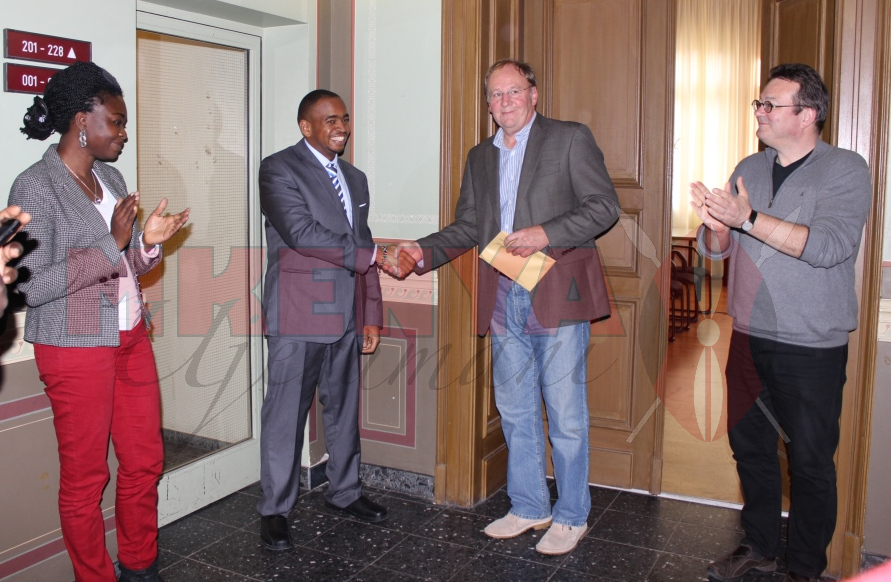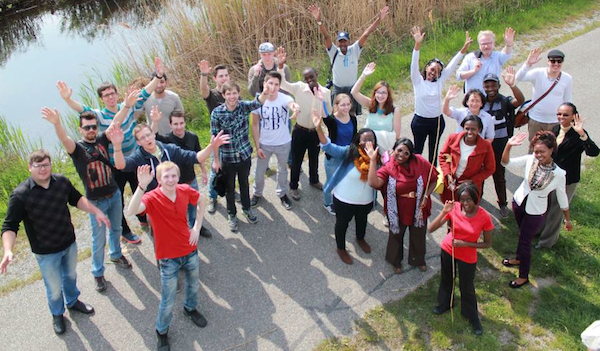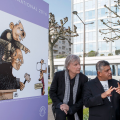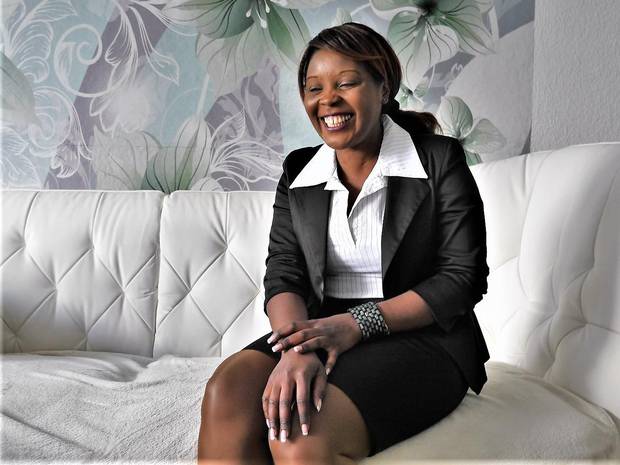
Kenyan woman Lilian Welter once had to escape to a battered women’s shelter (Frauenhaus), today she is a successful businesswoman.
She laughs a lot. „Laughing is good“, she says. Though 35-year-old Lilian Welter has been through a lot that wouldn’t have given her reason to laugh. But she had to endure the experience that the more emotions she shows, the more vulnerable she would become. Her siblings warned her about Germany. It wouldn’t be good for her. But Lilian wanted to see this world. She wanted to leave the Kenyan town of Busia near the border Uganda behind. She didn’t want to go to Mombasa or Nairobi where her siblings study or work, but to Europe.
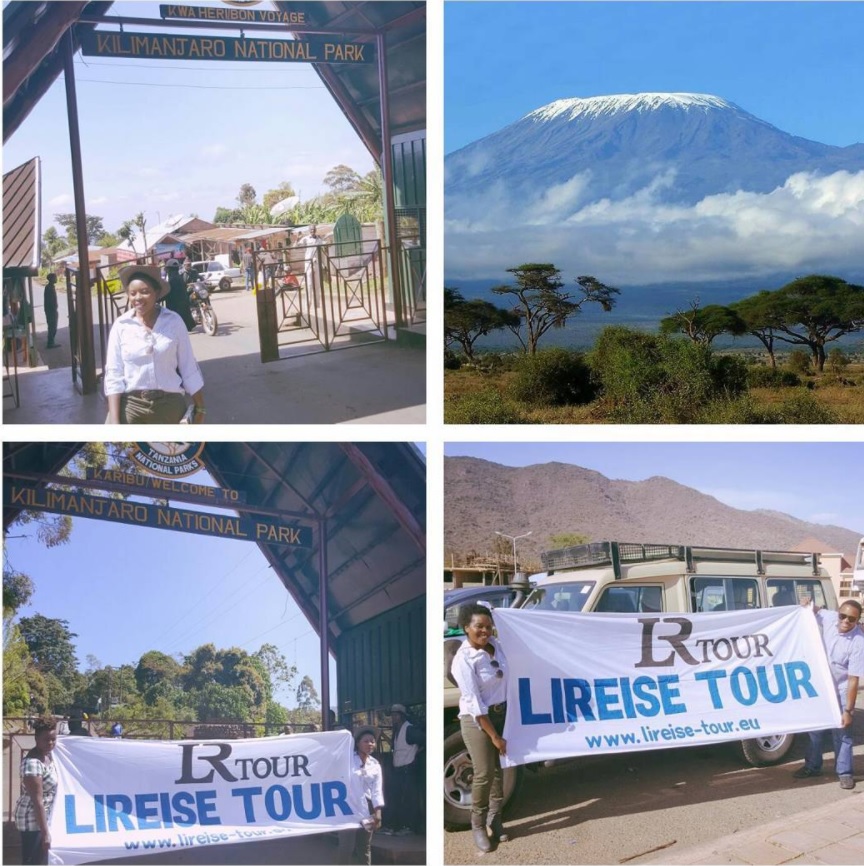
England would have been her first choice. But immigration and living in the country, where communication would have been no problem at all, seemed too difficult to her. Through an African-German agency which looked after her locally – thus easing her worries that something could happen to her in Germany – she could come to Europe as an au pair. „The people are so racist, my family warned me“, says Lilian and laughs. As if that claim was absurd. And? What did she experience? „I love experimenting“, she laughs. „You get used to being stared at. As a dark skinned person among white people you are bound to attract attention.“
She says, as a black Kenyan she will always stay a „foreigner“, even though she became a German citizen in 2014. In her Bad Godesberg living room beside the picture of her son, there is a photography framed showing lord mayor Jürgen Nimptsch presenting her with the certificate of citizenship.
The picture doesn’t show what the smiling Lilian Welter had been through until that moment. She had to flee her home, escape her husband, 20 years older than her, and father to her now nine-year-old son Nitro and find shelter in a women’s refuge. Her child was nine months old at the time. „Yes, that was terrible“, she says thinking back. Had she done what the man, who she had met online and later married, wanted – she would have become an geriatric care nurse. „That’s a job for foreigners, he told me. Maybe a hospital nurse would have been an alternative for me.“ But her husband said that only blonde women can work as nurses. Breaking up with him became inevitable and was beneficial. During the months in the women’s shelter she could collect her strength for taking her life back into her own hands. She just had to start over again.
„When I landed in Frankfurt in 2006, I thought I had arrived in a freezer“, she looks back on her naiveté, having been surprised by the November chill in Germany. Her goal to learn the language and study the European culture helped her get over the weather. She was very lucky with the family she stayed with in Wittlich, Rhineland-Palatinate, where she worked as an au pair. She learnt to speak German quickly and managed to shape her future.
She managed to do many things simultaneously – she learnt to design websites, worked in hotels, studied tourism management at a private college in Bad Honnef, and completed the course with a top grade. She understood that as a dark skinned person she would always have to be a little bit better than the others. Everybody looks at her, she thinks. Her mistakes are more visible than the others’. Often, she gets the impression, the older generation seems to be afraid of black people. Just like her son Nitro was afraid of all the black people when he met his grandmother in Kenya for the first time. Although both of them had stood in front of the mirror again and again, saying: „I am beautiful, I am strong and I can do everything.“ That exercise was to help Nitro become more self-confident. The auto-suggestion helped Lilian Welter.
Now she is a businesswoman. For her it seemed obvious to combine her knowledge as a tourism expert with her contacts in East Africa. First she made a name for herself as travel advisor, specializing in safaris, until she gathered the courage to offer her own holiday package deals for Kenya, Tanzania, Uganda and Rwanda in her own company called „LiReise Tour“. She self-published a book about safaris and produced a documentary film, showing the beauty of her birth country and quickening the appetite for the part of Africa, which she left eleven years ago.
Original text: Stefan Hermes
Translation: Mareike Graepel
For: GA-English



